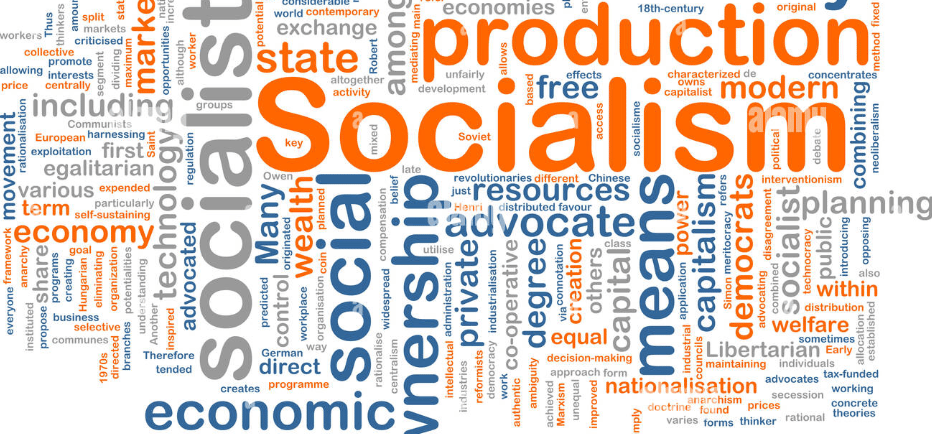Do You Know What Socialism Means in the Modern World
Socialism today is far different from the revolutions of the past. Discover what socialism means in the modern world, how it shapes policies in different countries, and why debates on universal healthcare, education, and wealth equality are resurfacing across the globe.
WORLD & POLITICS
Do You Know Team
7/27/20254 min read


Socialism is one of the most debated and often misunderstood political and economic concepts in the world today. While the word “socialism” once evoked visions of state-controlled economies and class struggles, in the modern world, it carries a much broader and more nuanced meaning. For some, socialism means ensuring equality, free healthcare, and education for all. For others, it represents restrictions on free markets and personal freedom. With rising inequality, globalization, and debates over workers’ rights, the idea of socialism is re-emerging in political discussions worldwide. But what does socialism really mean in the 21st century? Let’s break it down step by step.
1. The Core Idea of Socialism
At its heart, socialism is about collective ownership and equality. Traditionally, it promotes the idea that the means of production—factories, land, and resources—should be owned by society rather than by individuals or corporations. In the modern context, this often translates into governments providing public services like healthcare, education, and social security to ensure fairness and reduce inequality.
2. Modern Socialism vs. Historical Socialism
A thousand years ago, socialism didn’t exist as a concept, but in the 19th and 20th centuries, it rose as a response to industrial capitalism. Figures like Karl Marx and Friedrich Engels shaped early socialist theory, which later influenced revolutions in Russia, China, and other nations.
Today, socialism does not always mean full government control. Instead, it often refers to a mixed economy, where free markets exist alongside strong government regulation and welfare programs.
3. Socialism in Different Countries
Scandinavian Model (Democratic Socialism): Countries like Sweden, Norway, and Denmark are often praised for blending capitalism with socialist policies. They have strong welfare systems, universal healthcare, and free education, but also thriving private businesses.
China: Officially socialist, China has adopted market-driven reforms, creating a unique mix of state capitalism and socialism.
Cuba & Venezuela: These nations emphasize state ownership and subsidies, though critics argue this has sometimes led to inefficiencies and shortages.
United States: While primarily capitalist, movements advocating for universal healthcare, free college education, and workers’ rights often reflect modern socialist ideals.
4. Key Features of Socialism in the Modern World
Universal Healthcare – Governments provide medical care as a right, not a privilege.
Education Access – Free or affordable education to create equal opportunities.
Worker Protection – Laws supporting minimum wages, unions, and safer working conditions.
Wealth Redistribution – Progressive taxation and welfare programs aimed at reducing the gap between rich and poor.
Public Ownership of Key Industries – Utilities, transportation, and energy are often state-owned or heavily regulated.
5. Why Socialism Is Resurfacing Today
Rising inequality and climate change have pushed socialism back into mainstream discussions. Many young people around the world view socialism as a solution to corporate monopolies, unaffordable healthcare, and environmental destruction. With global crises such as pandemics and economic recessions, governments stepping in with large-scale social spending has renewed interest in socialist ideas.
6. Socialism vs. Capitalism in the 21st Century
Capitalism focuses on competition, profit, and private ownership. It drives innovation but often creates wealth gaps.
Socialism emphasizes equality, social welfare, and collective good but may risk reducing incentives for innovation if not balanced well.
In the modern world, many countries adopt a hybrid model, taking the best of both systems to balance growth with fairness.
7. Socialism and Technology
With the rise of artificial intelligence and automation, millions of jobs could disappear in the coming decades. Socialists argue for stronger social safety nets, universal basic income (UBI), and public investment in education and retraining to ensure that technological progress benefits all, not just corporations.
8. Criticism of Modern Socialism
Critics argue that too much government involvement can lead to inefficiency, bureaucracy, and a lack of innovation. Examples like Venezuela are often cited, where socialist policies contributed to economic crises. Opponents also believe that socialism can limit personal freedom by over-regulating markets.
9. Supporters of Modern Socialism
Supporters argue that socialism creates a more just and humane society. By guaranteeing healthcare, education, and basic needs, it allows people to live with dignity. They also claim it reduces social unrest by addressing inequality and ensures that wealth is not concentrated in the hands of a few.
10. The Future of Socialism
The future of socialism in the modern world may not look like the revolutions of the past but rather as a gradual integration of socialist principles into capitalist economies. As climate challenges, healthcare crises, and income inequality continue to shape societies, socialism is likely to play an even greater role in shaping global policies.
FAQ
Q1: What does socialism mean in simple terms?
A1: Socialism is a system where wealth and resources are shared more equally, and governments provide services like healthcare and education to reduce inequality.
Q2: Is socialism the same as communism?
A2: No. While communism advocates for complete abolition of private property, modern socialism often supports a mix of public services and private businesses.
Q3: Which countries use socialism today?
A3: Scandinavian countries, Cuba, China, and Venezuela apply socialist principles in different ways, though most nations today use hybrid systems.
Q4: What are the benefits of socialism?
A4: Reduced inequality, universal healthcare and education, stronger worker rights, and a focus on collective well-being.
Q5: What are the downsides of socialism?
A5: Potential inefficiency, over-dependence on government, reduced innovation, and risk of economic mismanagement if poorly implemented.
Conclusion:
Socialism in the modern world is not a rigid ideology but a flexible system of policies that aim to reduce inequality and promote fairness. While capitalism drives innovation and growth, socialism ensures that the benefits are shared more widely across society. From Scandinavian welfare states to debates in the U.S., socialism is evolving to fit the challenges of the 21st century. Whether embraced or criticized, it continues to play a central role in shaping economic and political debates worldwide.
#Socialism #ModernEconomy #Equality #DemocraticSocialism #Politics #GlobalTrends #EconomicSystems #CapitalismVsSocialism
Knowledge
Empowering minds with reliable educational content daily.
Newsletter Signup
© 2025 DoYouKnow. All rights reserved.
Stay Ahead of the Trends – Join Our Newsletter
